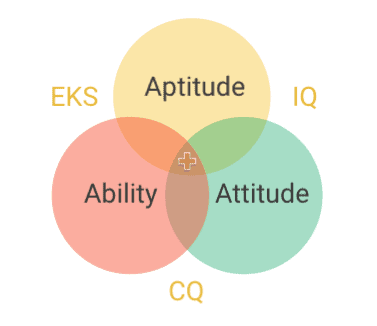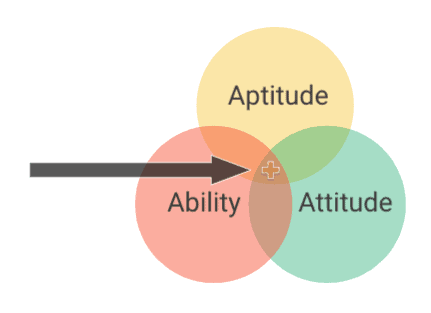A company is only as good as its team, which is why the startup hiring process is so critical as you build out your startup. Hiring the wrong person will cost you far more than time and money—it can be the difference between becoming a market leader and a market laggard. Or worse, a bad hire can destroy your business.
Startups often hire the brightest talent they can find, expecting them to produce the best results without making sure those hires are the right ones for your startup.
In this video, Underscore VC investor Sooah Cho shares some more context on what investors look for in early-stage teams.
Some well-intentioned founders recruit aggressively, sell hard, or pay up to get the perceived best person, only to find they’re not right for the company. But even if they work for a while, a force-fit hire will ultimately be rejected like a misplaced organ transplant.
Finding people who fit does not mean giving up on diversity. By definition, diversity allows a company to collect from a fuller range of talents, capabilities, and learnings available in the labor pool. It can also enable your startup to:
- Foster more innovation and creativity.
- Bring broader problem-solving skills.
- Help teams find new solutions.
- Better understand the needs, styles, and approaches of a global customer base.
It’s about finding the right people who will add to your company.
Hiring for Startups
So, how do you ensure that a prospective hire will add to your company? By focusing on the following three areas, you can build an A+ team of hires that will play an integral role in your startup’s success.

The three areas to address are:
- Will they reinforce and add to your startup culture?
- Will they really love the job?
- Can they be successful at the job?
As simple as these steps seem, they play a vital role in bringing on the right hires.
Step 1: Will they reinforce and add to your culture?
Don’t fall into the trap of simply hiring for smarts. Many founders like to start with IQ measurement, which is important (and is covered below in Step 3). However, even the brightest person will fail if they are disrespectful of your values, divisive or political, or unable to connect with your team socially. So, your hiring process could start with a focus on Cultural Quality (CQ) and Emotional Quotient (EQ).
Cultural Quality (CQ)
When evaluating for Cultural Quality, ask yourself: Does this person naturally align with your cultural values, work ethic, and working style?
As part of this process, you should feel comfortable with (or better yet, inspired by) their passions, beliefs, and aspirations. You can assess CQ with interview questions such as: What are you passionate about?
By being mindful of CQ, each person involved in the hiring process should rate the candidate’s cultural quality fit. The result? A hire that will add to your culture and positively impact company morale rather than be dilutive or divisive.
Emotional Quotient (EQ)
Alongside CQ is Emotional Quotient (EQ), which speaks to how aware people are of themselves, their fellow players, and how they build appropriate, necessary connections and relationships.
This is an important measure in startup hiring for many reasons, such as the need for speed, multipliers, and intimacy.
Speed
Startups, by definition, have limited resources. So the number one way they can compete with larger players is by moving fast.
That requires people who can “speed team,” which involves forming cross-functional and interdisciplinary teams that would simply be too organizationally onerous or politically challenging to create in larger companies. Thus, it becomes incredibly advantageous for startups.
At the individual level, good startup hires are great at experimenting and failing fast, yet learning even faster. This all takes a certain EQ, not just IQ.
Multipliers
Second, organizations with good EQ multiply their effectiveness externally. For example, they can build relationships with key partners that provide leverage in their sales and marketing. And they build better stakeholder relationships in general that improve their support base, costs, or time-to-market with supportive supply chains and even investor groups.
Intimacy
And as the last example, EQ is critical for early customer intimacy, which is often a crucial part of the startup success formula. This intimacy helps shorten the time and distance in market feedback cycles, drives faster product cycles, fosters loyalty, and translates into critical elements in a business, like a low churn rate.
Without EQ in your team from the outset, a startup is likely to sub-optimize. Example interview questions to include in startup hiring are:
- What do people think of you?
- What work relationships are you most proud of and why?
- What environment do you like to create?
There is a lot to consider when interviewing candidates for your venture. EQ is often more important than IQ in business success, and it’s critical for a functional startup.
Step 2: Will they really love the job?
An ideal hire’s passions and aspirations align with your startup’s vision and mission and the role you want them to play.
If they’re inspired to go after your goals and feel that their particular role meets their own aspirations, then they will likely be a good hire. Why? Because they will be doing the job for their reasons—not just yours. You’ll tap into their energy while inspiring them with yours.
And don’t worry about being too literal on this front. Few people (other than founders themselves) may have the vision. However, the candidate should at least be able to relate to your goals in some way. Good leaders help people see the impact individual roles and objectives can have on the bigger picture, ensuring employees feel they can make a real difference.
In the end, no matter the assigned role, people tend to naturally fall back to doing what they enjoy. Therefore, try to uncover their passions early and check if they meet your needs and have a place on your team.
Simply put, people who are passionate about what they do tend to take pride in and thrive in their role. The results and rewards typically follow.
Step 3: Can they be successful at the job?
This is often the easiest question to answer as it relies on more tangible measures of your potential hire’s capabilities. Of course, IQ is important, but as we’ve discussed, not every role is about IQ. Instead, break down a job into the required Experience, Knowledge, and Skills (EKS) so you can assess candidates beyond intelligence.
Evaluate for IQ and EKS Balance
The key question to ask is: What is the most relevant Experience, Knowledge, or Skill (EKS) you bring to the job?
This question brings out the basics and shows if they’re paying attention. The keyword is “relevant.” This tells you how much they’ve thought about your particular job in the startup hiring process and how (in their mind) they fit it.
There’s one specific area to dig into here: experimentation and problem-solving. To make a difference at a startup, you may need to develop a breakout strategy or a breakthrough discovery. At the very least, there will be some experimentation involved. To suss this out, ask:
- How do you experiment?
- In your previous role(s), what did you learn, prove, and act on?
- What are examples of problems that arose, and where did they lead you?
Think about the EKS relevant to the particular job you’re hiring for. Do you need intense creativity for a design hire? Plodding patience for customer support? Weight the EKS on your hiring checklist appropriately.
Identify the “A” Players
Startups all want to hire “A” players. You can do this by looking at three important ‘A’s: Ability, which we’ve outlined above, as well as Aptitude and Attitude.
Aptitude
Previous EKS is great. But with the rapid growth and change typical in a startup, hires need the Aptitude to adapt and learn new skills, or you’ll just as rapidly fall behind. So instead, consider quick learners who are hungry to self-educate and are adept at handling change.
Remember, if you’re going to make real breakthroughs, you must be willing to fail fast and learn even faster as you break into new areas with undefined outcomes or boundaries.
Attitude
On a similar note, pursuing breakout opportunities requires the right Attitude toward problem solving, persistence, and teamwork.
At early-stage startups, for example, it helps to be a self-starter with a positive attitude. It also helps to have the courage to embrace challenges as opportunities to learn for themselves and from others.
In startup hiring, “A” players have the right Ability, Aptitude, and Attitude.

The + Factor
Beyond “A” players, many hyper-competitive startups look for “A+” players. Everyone has their own way of defining what makes their team stand out. But what might be in that A+ for you? Underscore VC looks for Athletes who are Self-Aware and truly Authentic. These are pretty obvious qualities, but they are especially relevant to startups.
Athletes
Athletes (not necessarily literally physical athletes, though that can correlate too) often triumph over adversity, using their strength of mind and goal-driven persistence. And startups, in particular, need the agility of an Athlete to adapt to change, as discussed earlier.
Self-Aware
Self-aware people are easy to work with and are open about their self-professed strengths and weaknesses. This makes it easy to set them up for success and to surround them with complementary people. They also typically work well with others and are amenable to coaching.
Authentic
Last but not least, the hire needs to be Authentic. People can be convincing—a salesperson may convince you with their selling skills that they are a fit when they really aren’t. After all, it’s their job to sell. But you don’t want to sell or be sold in an interview. There need to be authentic synergies between the startup and the hire.
Make Each Interview Count
To ensure a great fit, you need to be strategic with your interview process in startup hiring. This includes developing thoughtful questions and listening closely to the answers.
Keep in mind: Every job and every candidate is different, and therefore every interview is unique. Some interviews can go completely off-script, but in the end, try to uncover the key aspects that enable you to understand the potential hire thoroughly.
Try to find your own approach to interviewing based on your startup’s culture, and then add your own style. For example, to get candidates to relax, you might take them for a walk. Ultimately, however you do it, you need to feel comfortable with the real person in front of you.
Find Real, Raw References
Even if you’ve done all the right things in your recruitment and interview process, love the candidate, and you’re ready to hire them…
Stop! Don’t pull the trigger.
Because no matter how well you may think you’ve gotten to know someone during the interview process, you can’t know them as well as people who have already worked with them before.
Instead, step back, sift through your network, and find some blind references. They will prove invaluable. Even if all your instincts turn out correct and this candidate is a great hire, you’ll learn more about how to mentor them, get them up to speed faster, and complement them in the workplace. And if your instincts turn out wrong, you’ll avoid a most costly mistake.
For tips to conduct a blind reference check, take a look at the article, Blind References: The Best Way to Avoid Hiring Mistakes.
In all, when hiring for startups, remember to ask:
- Will they reinforce and add to your culture?
- Will they really love the job?
- Can they be successful at the job?











